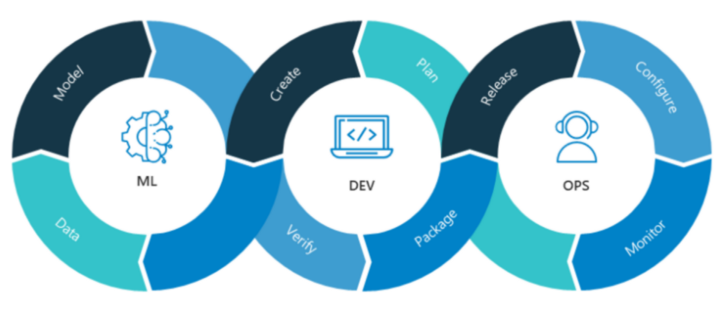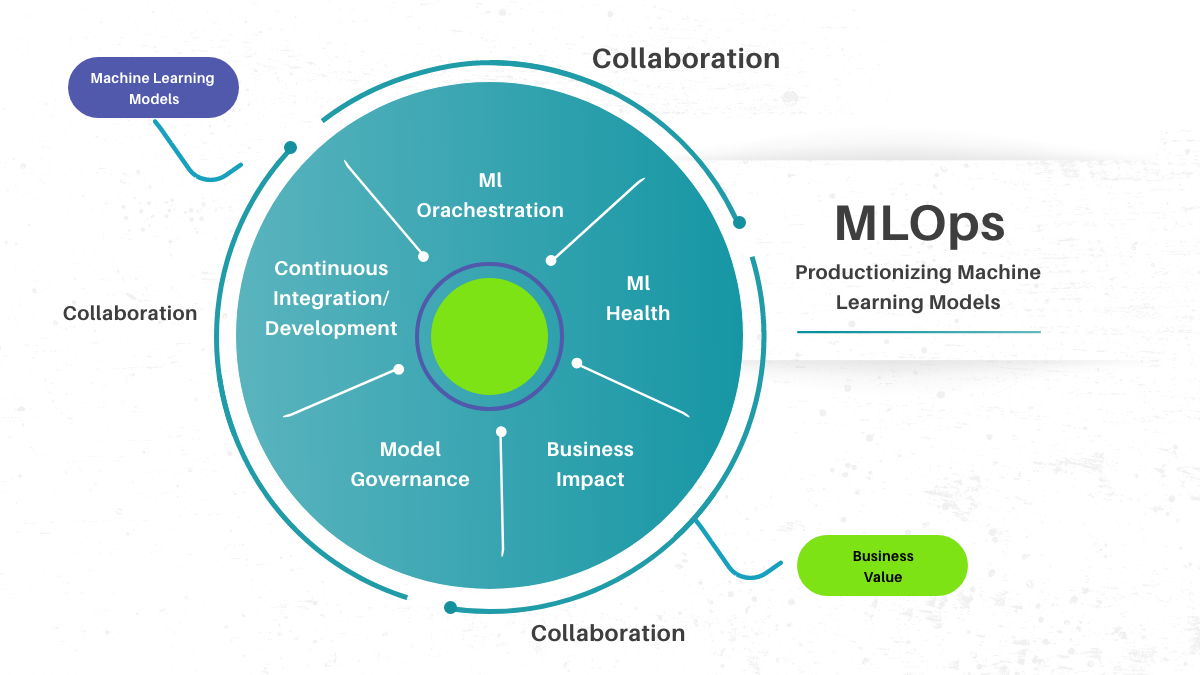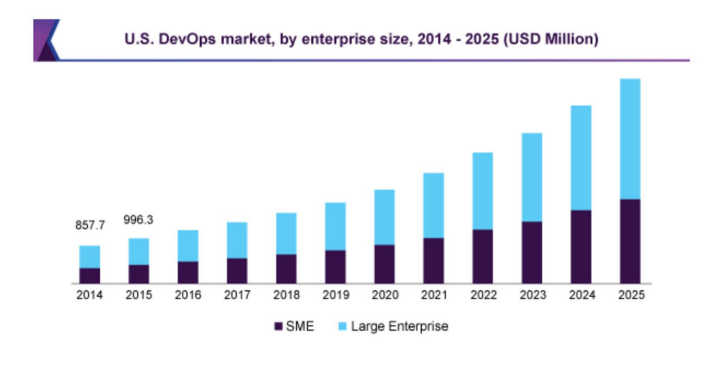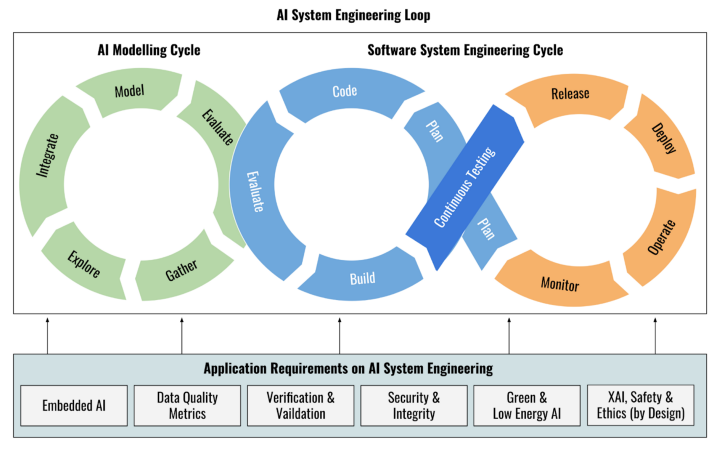How Are Artificial Intelligence(AI) And Machine Learning(ML) Revamping Performance of DevOps?
DevOps performance is critical for a business to succeed, and automation can give a boost to this aspect. Learn how AI and ML improve the performance of DevOps.
Join the DZone community and get the full member experience.
Join For FreeAI/ML and DevOps are hot buzzwords in the tech industry right now. Moreover, more than 15 million new jobs will be created in AI-related industries. Altogether, many companies are investing heavily in these fields to bring faster, more accurate, and more efficient tech solutions to their existing problems.
Thus, demand for artificial intelligence, machine learning, and DevOps is picking up an increased pace every hour. That's the reason the application of AI/ML in DevOps is the major center of attraction among businesses.
Actually, the DevOps team can harness AI and ML to speed up development cycles and fix issues more quickly. Altogether, this combination of technology can also help in gathering advanced data about their customers to better understand their buying habits to cater to CX better.
Apparently, the implementation of AI/ML tactics in DevOps is critical for both small and large organizations. However, a lot of businesses ask how AI and ML can be used in DevOps to acquire operational and cost benefits for the organizations. Because of these types of benefits, nowadays businesses are adopting DevOps to help their organization.
Surely, you, too, would be pondering about the application of AI/ML within DevOps. Let's explore.
Artificial Intelligence and Machine Learning Infusion in DevOps Is Ushering a New Era
Many businesses are doing their best to keep up with the ever-changing demands of customers, but it can be difficult for them. They might not have adequate time or resources because they're trying new things all of the time. This is where DevOps combined with AI/ML comes in to picture.
Moreover, the idea behind using AI and ML together in DevOps might seem like something that would benefit only large companies. However, you need to think again: 27% of small and large companies surveyed by ServiceNow said their company had hired someone "skilled" at machine learning. Therefore, there's hope yet if you need some help managing data input/output rates.
The benefits of adopting AI and ML into DevOps environments are clear. The same survey found that 85% of C-level executives believe these technologies can offer substantial value in terms of accuracy, rapid decision making. It all would lead companies to improve profitability and efficiency.

However, the major aspect is how much easier the implementation of AI/ML in DevOps can be, especially when you have problems tracking an organization's data. The reason behind this issue can be that the complexity involved has made things difficult before now. However, the implementation of AI and ML is critical in DevOps for organizational efficiency.
Evidently, the DevOps team has always needed a way to stay organized; but with ever-changing applications and environments, they found themselves struggling more than ever before.
This is where AI comes into play. It can help them track everything from development progress all the way up until delivery. It also eases down hassles on behalf of managers or technicians who must make decisions about what needs doing when there's not enough information available at once!
It's no surprise that DevOps experts are eager to capitalize on AI and ML.
The future of DevOps relies on AI-driven technologies. In the past, teams working in this field had to spend hundreds or even thousands of hours trying to identify one point within an exabyte (1 million gigabytes) worth of data.
However, with recent advancements, they can now do it much quicker, largely due to machine learning and natural language processing capabilities. It makes them more efficient than ever before.
This means that soon enough, you'll be able to get your hands on these incredible tools through day-to-day businesses. Moreover, you can hire DevOps developers to create a personalized solution to achieve great organizational process efficiency.
For now, let's take an in-depth look at the impact of AI in DevOps operations.
How Can Artificial Intelligence and Machine Learning Impact DevOps Operations?
What does it require to be a successful company in today's fast-paced world? A thirst for knowledge and innovation, and not just any old thing will do. To be a winner of the game, you need an edge: Human Insight + AI = DevOps!
The integration between these two technologies has helped companies like Netflix scale more efficiently than ever before. AI and DevOps have helped in improving their customer experience through automation which makes them one step closer to their business goals.
Here are some ways AI and Machine Learning can impact DevOps operations.
Enhanced Data Accessibility
The lack of unrestricted access to data is a critical concern for businesses, which rely on having reliable and robust evaluations. So much unsupervised information is available in today's world, from social media feeds or sensors placed all around us.
The need for data accessibility is a critical concern in today's DevOps teams, which AI can address by liberating information stored formally. This type of artificial intelligence collects and prepares the necessary evaluations from various sources with its enhanced capabilities that will be released soon enough.
If you want to leverage this feature of AI in DevOps, you can reach out to a DevOps consultant that can help you think out the right implementation of these technologies within your organizational processes.
Greater Implementation Efficacy
AI is useful for improving the efficiency of human decision-making by creating machines that can make complex decisions with greater accuracy than humans.
AI helps in addressing one major drawback in employing rule-based systems: how to assess whether an agent's actions were correct or not. Moreover, when there are no clear instructions on what should happen next, the condition often leads users into unpredictable behavior patterns.
Effective Use Of Resources
With AI, automated resources management becomes a reality. Moreover, their much-needed competence reduces complexity and repetitive tasks that take up so much time in day-to-day operations. AIs are an invaluable asset for any company looking to cut costs while improving efficiency with minimal effort on their behalf.
Now you have gained an understanding of how AI is going to impact DevOps. However, I don't think that machine learning's impact is the same as AI. Indeed, machine learning is a subset of Artificial Intelligence. However, the application and impact of machine learning on every business vertical are dissimilar. Let's take a glance at them.

DevSecOps
The DevSecOps approach to security offers software developers an innovative way of integrating machine learning.
ML in DevSecOps enables them not only in identifying bad behavior patterns that may have caused anomalies, like system provisioning or automation routine, but it also ensures unauthorized code doesn't make its way through during every step of the process chain - even testing and deployment activities.
With the use of machine learning and artificial intelligence, DevSecOps can now identify dangerous behavior patterns in key areas, such as system provisioning, that could lead to an anomalous outcome.
It also ensures that no unauthorized code or IP is being added during the process chain, for it would be among one of their most common bad practices too.
Addressing Crises
ML has the power to analyze machine intelligence, which is crucial in dealing with sudden alerts in the DevOps ecosystem. This is done by continuously training a system for identifying anomalies, thus helping prevent future issues of this kind at their beginning stages when they are most delicate and easily remedied.
Early Detection of Glitches
The DevOps team is now able to detect issues early by ensuring immediate mitigation response by using AI/ML.
The teams can also create key patterns like configuration benchmarking to meet performance levels and predict user behavior in order not to have any impact on customer engagement factors. This allows users to check these aspects going forward with greater insight continuously.
Efficient Production Cycle
With machine learning, you can find the leaks that lead to better management of issues in your application. Fluid Technology companies are using this technique to analyze resource utilization and other patterns while looking out for memory consumption on a system level.
It applies so well that you can understand what is happening within software algorithms while in production. The efficiency of production can be increased with machine learning, which will allow DevOps engineers to find and fix memory leaks.
This process is beneficial because it helps reduce waste in a company's resources as well as other patterns that may arise from analyzing usage data.
Business Assessment
With all the talk about DevOps and its implementation, it can be easy to forget one of its major functions is ensuring business continuity. This means taking care of not only process development, but also planning against any potential issues or emergencies before they arise so that you are always prepared.
Machine learning does just this by analyzing user metrics, like how many times certain lines were clicked on during testing periods and alerting coders when something seems out-of-ordinary.
Wrapping Up
The integration of AI and ML in development operations (DevOps) is ushering in a new era, one that will be characterized by greater implementation efficiency.
Machine learning can provide the necessary insights to enhance DevOps performance and address crises early on. Enhancing data accessibility through AI and ML allows for improved business assessments so production cycles are more efficient than ever before.
Moreover, with AI-powered DevSecOps, glitches won't go unnoticed until they become costly crises; instead, you'll get an alert as something goes wrong.
Opinions expressed by DZone contributors are their own.



Comments